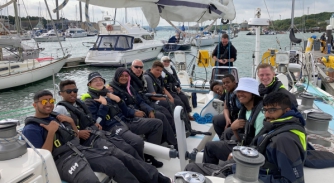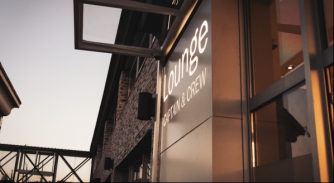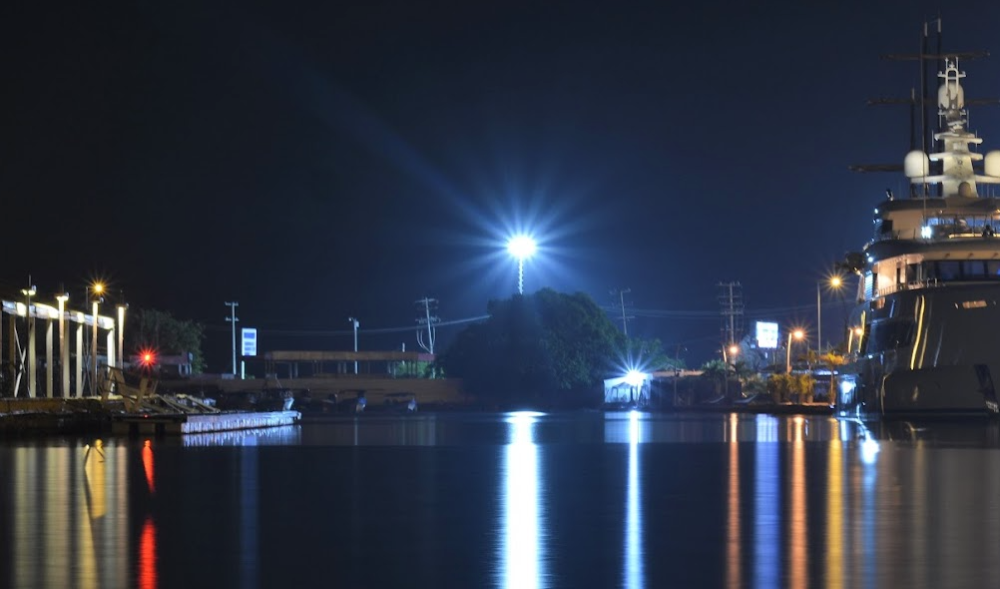Quay Crew and MHSS publish stark crew mental health report
SuperyachtNews speaks exclusively with Charles Watkins, Clinical Psychologist at MHSS, and Tim Clarke, director at Quay Crew…
In partnership with Mental Health Support Solutions (MHSS), Quay Crew has produced a report based on a mental health survey with crew. With over 1000 anonymous respondents from more than 50 countries, the highly statistically significant report makes for stark reading. It is a prescient overview of the mental health of crew, with the survey open from 7 September to October 2021.
The industry is rife with anecdotal evidence, and while this has served a purpose to get the conversation started, it is time for data to start affecting real change. The full report is vital reading and can be seen here. SuperyachtNews speaks exclusively with Charles Watkins is managing director and Clinical Psychologist at Mental Health Support Solutions, and Tim Clarke, director at Quay Crew, about the report and the underpinnings of its conclusions.
“89 per cent of crew have never received any mental health training of any description, at any point in their yachting career. So that's a fairly damning statistic,” States Clarke.
This is also a headline statistic that is hard to balance with the narrative from management companies around the extensive application of mental health support services. Likewise, the survey highlights that 62% of crew claim to be unaware of any policies or practices in place to address mental health issues.

While the anecdotal evidence suggests that the dialogue is changing and the industry is becoming more open and inclusive, these statistics highlight a disparity. Without pointing a disparaging finger, I am sure that if we canvassed the top 10 management companies, all would provide an extensive list of mental health practices that they have, at least in theory, implemented. Equally, I am sure that the crew that respond to these questions are not lying or ignoring these services.
As Watkins points out, drawing on his experience in the commercial shipping sector, 'support' is a matter of the culture on board, and feeling supported is about more than just having a phone line to call. "The leadership defines the culture on board," starts Watkins, "and if it's a culture of care and empathy and compassion, you can almost always see that the captain is very strongly an ambassador for that behaviour."
Speaking as a clinical psychologist, about the underlying causes of on board fatigue in the superyacht industry, Watkins highlights the layered effect of the culture on board. "The most significant factor, at 62 per cent, that contributes to negative mental health is burnout fatigue, but crew tension from either harassment, bullying, some form of abuse is 59 per cent. The higher ranking of the individual, the more potential to impart stress on other people, and so this is very strongly linked to leadership."
Another critical statistic that paints a stark picture is that 22 per cent of female respondents label their mental health as 'poor' to 'extremely poor', along with 8 per cent of male respondents. A dismissive narrative that often accompanies mental health discussions, is that it is purely a young 'greenie' issue. But with almost two-thirds of respondents over 30, this report does not support that assertion.
Not having an effective channel to talk about these issues openly compounds it further. It is again unsurprising that 37 per cent disagree or strongly disagree with the sentiment that they feel comfortable going to their HOD with mental health issues. It is a daunting task at the best of times in any industry. As highlighted in the report, only five per cent of crew would feel comfortable calling a 24/7 shoreside support network.

Management companies, recruiters and captains regularly complain about a skill shortage and a lack of quality crew. If crew were better supported by a positive work culture, giving them additional time off and implementing transparent mental health training and policies, they would be in a much stronger position to get through challenging seasons and situations. This would result in more 'quality' crew being available.
Tellingly, 59 per cent strongly agree or agree that drug and alcohol misuse contributes to the mental health issues of those on board, but less than 20 per cent see it as an issue for themselves, and as Clarke highlights: "So there's a massive conflict there. The attitudes being 'I can get drunk all weekend and it doesn't affect me, but it does affect others.' We've discussed this before, but sadly, yachting has a significant drug and alcohol problem. More rigorous drug testing would certainly reduce drug abuse on board. I also think many yachts could look at their alcohol/drinking policies too. I believe those two steps would make a marked difference to the prevalence of mental health issues onboard."
Reality TV does not help yachting image, nor do yachties sometimes. But the symptoms of substance abuse and depression manifest in many ways. Many crews drink excessively to release from the stress of a high-pressure job, as many industries do. But we don't all wake up at the office. Every day. For five months in a row. This festive season, imagine the anxiety that descends the morning after the Christmas party, and then imagine repeating until Summer.
The report is necessary reading for everyone and can be read in its entirety here. SuperyachtNews will follow up with Clark, Watkins and the team at Quay Crew and MHSS about their next steps to address the issues starkly highlighted in the report, which will add to the welcome data stream that is coming from various industry stakeholders. Helping with the transition from stories, to questions, to data and then action for this critical issue.
Profile links
NEW: Sign up for SuperyachtNewsweek!
Get the latest weekly news, in-depth reports, intelligence, and strategic insights, delivered directly from The Superyacht Group's editors and market analysts.
Stay at the forefront of the superyacht industry with SuperyachtNewsweek
Click here to become part of The Superyacht Group community, and join us in our mission to make this industry accessible to all, and prosperous for the long-term. We are offering access to the superyacht industry’s most comprehensive and longstanding archive of business-critical information, as well as a comprehensive, real-time superyacht fleet database, for just £10 per month, because we are One Industry with One Mission. Sign up here.
Related news

Mentoring the next generation
Yachting’s first industry-wide mentoring programme, LEGASEA Mentorship will be launched in December
Crew

UKSA aims to enroll 500 disadvantaged youths
UKSA and Edmiston will aim to give those less fortunate an opportunity to forge a career in the superyacht industry
Crew

“Crew have to care about the boat, we have to care about them”
Porto Mirabello completes the next stage of its development with the opening of its captains and crew lounge
Crew

UKSA announce new collaboration
The UKSA today announced a new and exclusive collaboration with a famed bolthole in the Isle of Wight
Crew

Bond TM announces partnership with Poppy
Technology focussed pathogen sensing and detection network monitors air and surfaces for COVID-19
Technology
Related news
Mentoring the next generation
4 years ago
UKSA aims to enroll 500 disadvantaged youths
4 years ago
UKSA announce new collaboration
4 years ago
Bond TM announces partnership with Poppy
4 years ago
NEW: Sign up for
SuperyachtNewsweek!
Get the latest weekly news, in-depth reports, intelligence, and strategic insights, delivered directly from The Superyacht Group's editors and market analysts.
Stay at the forefront of the superyacht industry with SuperyachtNewsweek




